- |<
- <
- 1
- >
- >|
-
Shota Uchino, Satoshi Aoki, Takuji Kousaka, Hiroyuki AsaharaArticle type: Paper
2023 Volume 36 Issue 6 Pages 155-162
Published: June 15, 2023
Released on J-STAGE: September 15, 2023
JOURNAL FREE ACCESSIn this study, the first step we investigate the bifurcation phenomenon in a current-controlled step-up DC–DC converter with photovoltaic (PV) module using a one-dimensional circuit model. Specifically, we analyze the occurrence of the bifurcation phenomenon in this circuit model by defining the output voltage of the converter as constant and utilizing a PV module nonlinear output model with a relatively small number of parameters. Our results reveal the existence of a unique bifurcation structure in DC–DC converters with PV module, which has not been previously reported. We further elucidate the mechanism of occurrence through a stability analysis based on the brute-force method. The findings of this study contribute significantly to the development of circuit and bifurcation theory for current-controlled step-up DC–DC converters with PV module.
First, we show a one-dimensional model of a current-controlled step-up DC–DC converter with a PV module and demonstrate the output characteristic model and circuit behavior of the PV module. Next, we explain the stability analysis method applied to this circuit model. Finally, we analyze the bifurcation phenomenon that occurs in this circuit model and discuss the mechanism of a unique bifurcation structure.
View full abstractDownload PDF (815K) -
Tomoyuki Iori, Yasumasa FujisakiArticle type: Paper
2023 Volume 36 Issue 6 Pages 163-171
Published: June 15, 2023
Released on J-STAGE: September 15, 2023
JOURNAL FREE ACCESSIn this paper, we investigate the effect of norm selection in the scenario approach to robust feasibility problems. A robust feasibility problem can be converted into a robust optimization problem by minimizing a fictitious cost function, and the scenario approach is a method to find a stochastic approximation of the optimal solution in an affordable computational time. When considering a norm of the decision variable as the fictitious cost function, the choice of the norm may affect the robustness of the solution obtained by the scenario approach. To demonstrate the effect of norm selection, we compare the 2-, ∞-, and 1-norms by simulating two illustrative examples. Moreover, the effectiveness of the ∞- and 1-norms compared to the 2-norm is demonstrated in a numerical example of a finite-horizon optimal control of uncertain linear systems.
View full abstractDownload PDF (806K)
-
—An Application to Machining Scheduling ProblemsKazutoshi Sakakibara, Kosuke Nakata, Jin Matsuzaki, Masaki NakamuraArticle type: Paper
2023 Volume 36 Issue 6 Pages 172-178
Published: June 15, 2023
Released on J-STAGE: September 15, 2023
JOURNAL FREE ACCESSThis paper addresses the scheduling of an operator and a machine in the machining process. While both schedules are reduced to the job-shop type, the operator's completion time is relatively uncertain, so rolling scheduling is required. For problems with these characteristics, we apply relax-and-fix heuristics, in which some decision variables in each rolling are relaxed based on a mixed-integer programming model. Although the relax-and-fix heuristics can reduce the solution cost by mathematical programming, it may significantly reduce the optimality of the derived solution, depending on how the set of variables to be relaxed is selected. Therefore, we incorporate metaheuristics into the relax-and-fix heuristics to always choose the appropriate relaxation variables. The effectiveness of the proposed method is confirmed by applying it to real-world machining scheduling.
View full abstractDownload PDF (980K)
- |<
- <
- 1
- >
- >|